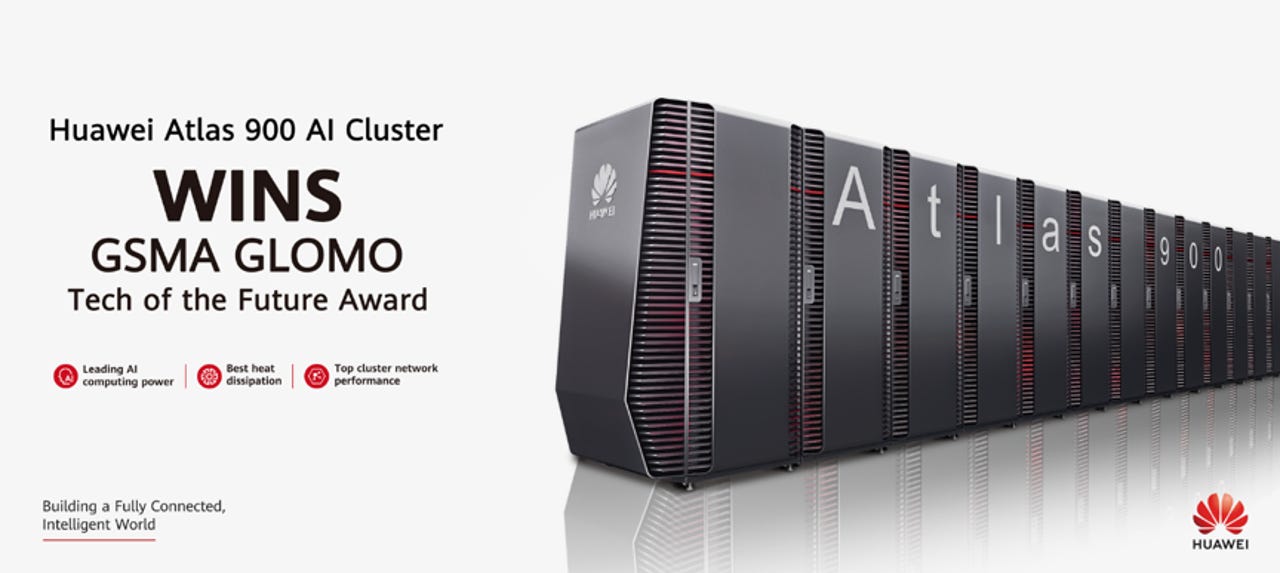Huawei Cloud & AI Wins the Most Prestigious Award of the Global Mobile Industry
By 2023, the mobile industry will be worth $4.8 trillion, or 4.8 per cent of the global GDP.[1] What's even more noteworthy is that the growth will be from 4.6 per cent of global GDP in 2018; in other words, the mobile market's value to the world economy is growing, relative to everything else.
The only way that mobile technology is going to be able to continue building nations and providing new opportunities for economic input is through further technological innovation. 5G is one such technology that can be expected to give mobile investment and spending a shot in the arm. The Internet of Things (IoT) has been doing so for the last couple of years. As useful as those endpoints and access points are to the growth of mobile, however, there is also the need to continue to innovate on the foundations that mobile technology runs off.
One such example of the direction mobile platforms will be heading in the future is the Huawei Atlas 900 AI cluster. Built within the technology (which offers the computing power of 500,000 PCs at up to 1024 petaFLOPS) are a number of innovations, highlighting areas that technology companies will need to focus on going forward.
One area of innovation is in power consumption and sustainability. Delivering services over mobile technology requires significant server activity and power consumption, and this is at odds with the increasingly vocal calls being made within societies to mitigate against environmental impact. The writing was on the wall when the world's largest investment firm, BlackRock, announced that it would no longer invest in heavily polluting companies:[2] climate change and environmentalism was now a governance issue, and boards in organisations of every size need to take it every bit as seriously as risk management as areas such as fraud and data security.
Technology is one of the biggest contributors to an organisation's carbon footprint. To help manage this, while continuing to leverage advanced computing power, Huawei has developed a hybrid liquid cooling solution with cabinet-level enclosed adiabatic technology. Through this, the Atlas 900 AI cluster is able to achieve a PUE of below 1.1 for up to 50 kW of power, preventing overheating and limiting the environmental impact. Additionally, the Atlas 900 reduces the equipment footprint by 79 per cent, resulting in a vastly lower TCO to run the system.
Beyond the sustainability story, for governments, scientific researchers, businesses delivering modern mobile solutions, and anyone else that needs powerful technology systems, the Atlas 900 AI cluster's real capacities are in its name – this was a device designed around deploying powerful AI.

Huawei Atlas 900 wins the GSMA GLOMO Tech of the Future Award
The Atlas 900 AI cluster features three high-speed interconnect modes: Huawei Cache Coherent System (HCCS), PCIe 4.0, and 100GE. With data center switches from the Huawei CloudEngine series, the Atlas 900 AI cluster features a full-mesh parameter synchronisation network for AI model training, which boasts over 100 TB/second. This reduces synchronization latency by between 10 per cent and 70 per cent, resulting in the Atlas 900 cluster being able to complete the ResNet-50 model training benchmark test in under a minute (59.8 seconds) for the first time in history.
The Atlas 900 AI cluster's AI credentials are further enhanced by its use of the Ascend 910, the world's most powerful AI processor. Each of these processors have 32 built-in DaVinci AI cores, and the Atlas 900 AI cluster interconnects thousands of these processors together. In adopting SoC design to support both AI and general-purpose computing, the solution is able to run high-speed, large-bandwidth I/O.
What this means is that the Atlas 900 cluster is able to deliver truly advanced mobile solutions, powered by advanced AI, to huge numbers of devices across the world. It is the first example of a platform truly capable of delivering to the potential of 5G.
It is for this reason that Huawei was awarded the GLOMO Award – the award for tech of the future – by GSMA at the Global Mobile Awards 2020. As mentioned by the judges in giving the award: "This entry created a platform for progress across a wide array of applications in the mobile industry and beyond, leveraging the latest technology to deliver incredible speed and performance with a minimal carbon footprint."
AI is going to be the battleground of the future in determining the success of mobile solutions, technologies, and applications. The Atlas 900 AI cluster won the prestigious tech of the future award by demonstrating, clearly, what these future solutions might start to look like.
[1] https://www.gsmaintelligence.com/research/?file=b9a6e6202ee1d5f787cfebb95d3639c5&download